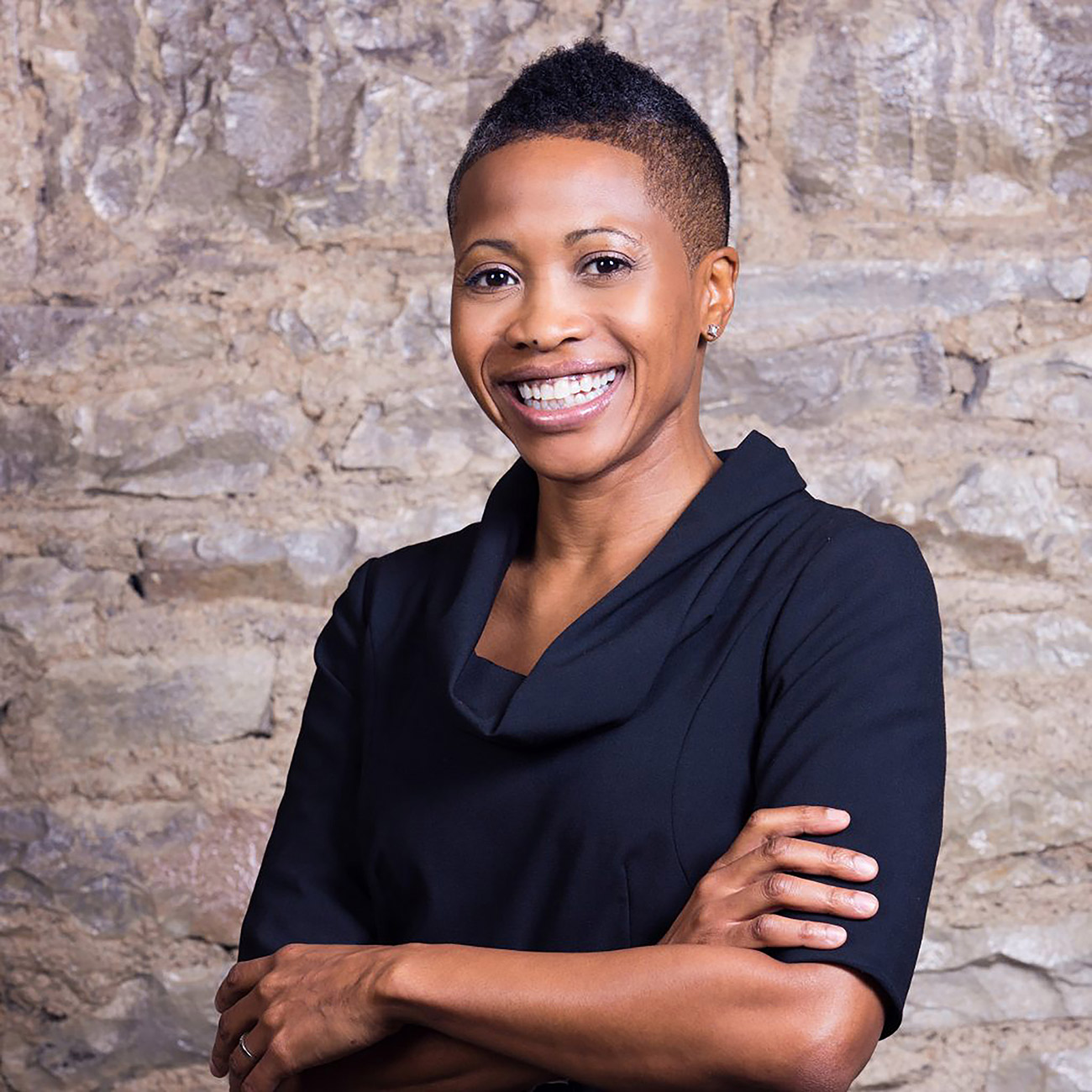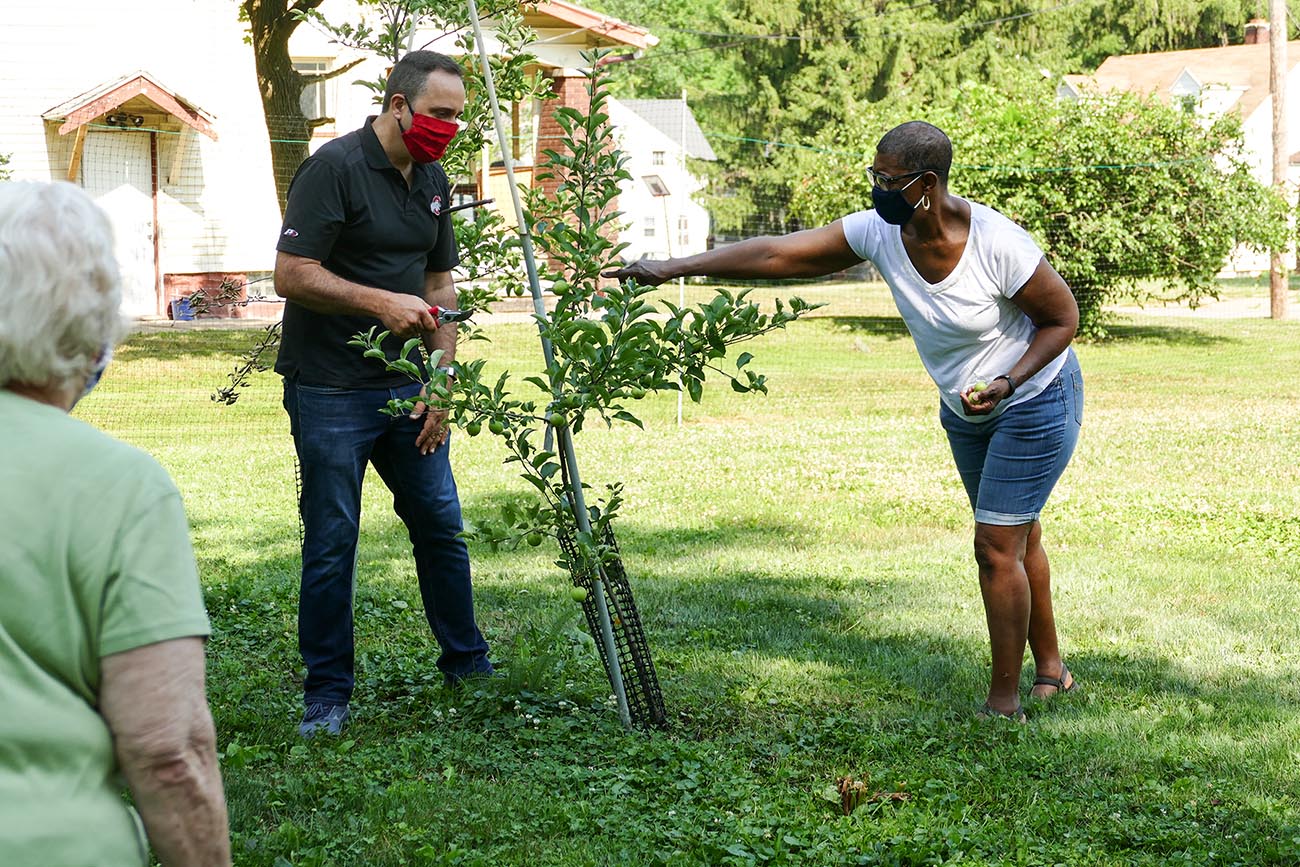Mahoning Valley, Ohio
A Vision for a More Equitable and Vibrant Mahoning Valley
Jennifer Roller is the president of the Raymond John Wean Foundation. Headquartered in Warren, Ohio, the Raymond John Wean Foundation’s mission is to advance community-building in Warren and Youngstown, Ohio, through grantmaking, capacity building, convening, and partnerships. One of the foundation’s strategic goals is to increase the economic opportunity and mobility of residents in both cities. Jennifer Roller has been with the foundation since 2007 and became its president in 2014.
In our conversation, Roller discusses some of the issues surrounding race that communities in the Mahoning Valley face. While the African American community makes up 8 percent of Trumbull County’s population, 66 percent of the population in urbanized Warren, Trumbull County’s seat, is African American. Similarly, African Americans make up 43 percent of urbanized Youngstown, while its county, Mahoning, is 16 percent African American. These two urbanized areas experienced unemployment and poverty more acutely than the rest of the Valley. In Youngstown, for example, unemployment for African Americans is three times higher than it is for white workers. Furthermore, the poverty rate in Youngstown is 36 percent, more than two times higher than that of the county as a whole.
In the summer of 2020, in the context of the COVID-19 pandemic and the Black Lives Matter protests that followed the murder of George Floyd at the hands of the police, both Warren and Youngstown joined thousands of other municipalities around the country in declaring racism a public health crisis. Both communities hope that these events serve as catalysts to address a history of systematic racism and inequality in the region. —Quilian Riano, In the Mahoning Valley chief editor
Explore these related features: Read more about the future of work in the region in a profile of Building a Better Warren. Learn more about efforts to support employee-owned enterprises.

Jennifer Roller, president of the Raymond John Wean Foundation. Credit: courtesy of the Wean Foundation
Quilian Riano interviewed Jennifer Roller in 2020.
The following has been edited for length and clarity.
Quilian Riano (QR): As you partner with groups all over the Mahoning Valley, what are some projects or ideas you think are laying the groundwork for the future of work in the area?
Jennifer Roller (JR): Notwithstanding the Raymond John Wean Foundation’s annual investment of $2.5 to $3 million, the needs of this community—one that has experienced severe and consistent underinvestment for at least the last 40 years—persist. To achieve its greatest impact, the Foundation focuses its investment in the cities of Warren and Youngstown, Ohio.
If you consider the low rates of educational attainment and high unemployment, especially for Black people, there is reason to sound the alarm. Though if we are intentional in our approach, we can promote progress and eventually growth. For example, members of several sectors of community leadership were accepted to and have committed to participation in the national model, Communities of Excellence, a systems approach to achieving a high level of community performance. Regionally, the Fund for Our Economic Future, of which several Mahoning Valley foundations are members, has created an alliance of funders to advance economic growth and equitable access to opportunity.
Along with these approaches are notable local efforts: Youngstown Neighborhood Development Corporation and Trumbull Neighborhood Partnership, community development corporations created through public–private partnerships that embody resident engagement–centered models to revitalize our neighborhoods. And Inspiring Minds Warren, a Black-led organization that delivers academic and cultural enrichment, with an explicit commitment to the uplift of Black people. These groups are doing what it takes to ensure a different, better community: mining for data and being transparent about what it reveals, seeking and incorporating community voices, collaborating across sectors, and tracking and measuring progress.
In continued support of the nonprofit sector, the Foundation is researching the incubation of Black-led nonprofits whose leadership and missions are specifically focused on the engagement, empowerment, and upward mobility of Black people, providing space, mentoring, and technical assistance.
QR: What is the role of philanthropy in supporting the community’s economic future?
JR: There is room for us all, from charitable giving to strategic grantmaking. Determine who you are, what you do exceptionally well, and then do your part. In philanthropy, we are looked upon as leaders. And we must lead by example. Connecting, coordinating, and collaborating, just as we encourage our grassroots and community leaders and government. For the Raymond John Wean Foundation, that means being explicit in our strategic priorities of community revitalization: sustainable and resourced physical landscape in Warren and Youngstown; economic opportunity: upward mobility of residents, beyond one securing a “good job”; educational opportunity: school, college, and career readiness of Warren and Youngstown City School District students; and public- and civic-sector leadership: efficient and effective local government infrastructure. And then create opportunities for it all to come together.
When I close my eyes, I see a family that could live anywhere and chooses to live in the cities of Warren or Youngstown. They choose to because the neighborhoods have been revitalized; they are not only clean and safe but attractive and well maintained. The neighbor kids make friends and play in the yards and parks until the streetlights come on. And then play a little longer. The “good jobs” are more than a living wage: They provide the sustainability to pay expenses, ordinary and emergency, enjoy what life has to offer right now, and invest for the future. Surviving is a thing of the past. Thriving is all they know. With that, they can maintain their homes and pay taxes, which amongst other things, supports the education of their schools. Thriving is the theme in all aspects of life. Their kids, having attended quality day care, arrive at school ready to learn and thrive socially, making friends of all races and backgrounds, because they are no longer in a place where the advantaged leave the area for a better future. They thrive academically because of the rigorous education and training they have received, ultimately choosing any career they can imagine. Including becoming a teacher. Teachers who want to teach remain in these districts because they no longer must chase a higher wage, opportunity, or status somewhere else. They choose to be here. Residents’ civic engagement is evident. They make informed choices to participate on school boards and city council and volunteer in their neighborhoods and surrounding communities. They participate and influence the local government. Rinse and repeat, until we create the vision we seek: empowered residents creating an equitable Mahoning Valley, one that is vibrant, healthy, and economically stable.
QR: Moving forward, what do you think are some of the barriers that need to be addressed so that economic opportunities reach all members of the Youngstown/Warren/Lordstown community?
JR: Race equity. Period. We have adopted a simplified definition: a future condition (because we’ve not seen it before) where one’s race does not influence how one fares in this society. If you are our grantee, partner, or vendor, that is the conversation we are having at the Raymond John Wean Foundation. And because we live, play, and thrive together in community, we all should be willing to have the conversation and to stay in that conversation, even with all the discomfort, and initiate actions to change.
QR: How do you think that having a job and seeing an economic future affects the identity of this community?
JR: At a decision-making table, some years ago, an influential leader made an off-handed comment about economic development as it relates to employment. He shared his reasons for why there were unfilled jobs: a basic belief that people did not want to work and could not pass drug tests, finally resting on, “I’m trying to win, and I can’t win with these people.” His perspective did not consider the very real challenges of limited childcare, lack of transportation, or employer bias, and certainly did not explore the reasons behind drug and alcohol abuse or criminal records.
From what I have observed, generally folks want to contribute. It is almost always the barriers stemming from systemic racism that prevent them. When you take away access to education, transportation, healthcare, and employment, you take away hope. Ultimately, we all live with the results: health, education, employment, and housing disparities. It should and can look differently.
At the Raymond John Wean Foundation, we are working hard to not only do our part, but also publicly support what is right and speak out against what is wrong: systemic racism.
For too long we too have focused on solving the easy problems and removing the low barriers, and not scaling to the challenges.
In partnership with empowered residents, we leverage our role and resources to provoke new thinking, build strong communities, and disrupt the status quo to create a healthy, vibrant, equitable, and economically stable Mahoning Valley.
Biographies
has been president of the Raymond John Wean Foundation since 2014. Before coming to the Foundation in 2007, she was director of Upward Bound and SCOPE at Youngstown State University. Roller earned her bachelor’s and master’s degrees from Youngstown State University and, in January 2013, completed a one-year fellowship with the Association of Black Foundation Executives (ABFE), an independent membership organization that promotes effective and responsive philanthropy in Black communities.
The views expressed here are those of the authors only and do not reflect the position of The Architectural League of New York.
Select Bibliography
Beverly, Michael A. “African-American Experience in Youngstown 1940-1965.” Master’s Thesis, Youngstown State University, 2002. http://hdl.handle.net/1989/6222.
Grabar, Henry. “But, What Do the Black Working-Class Voters of Youngstown, Ohio, Think?” Slate Magazine, June 16, 2019. slate.com/news-and-politics/2019/06/black-voters-youngstown-ohio-trump-democrats.html.
Hiner, Dan. “Local Historian Recounts Black Migrations to City.” Business Journal Daily, June 19, 2020. businessjournaldaily.com/bites-bits-showcases-black-migrations-to-youngstown/.
WKBN News. “Warren City Council Set to Vote on Declaring Racism a Public Health Crisis.” June 23, 2020. www.wkbn.com/news/local-news/warren-city-council-set-to-vote-on-declaring-racism-a-public-health-crisis/.

